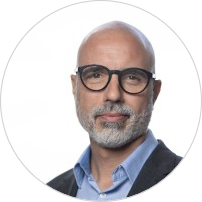Former FSC Director: Tropical forests and integrity are existential tests
Can the world’s leading forest certification system survive its own growing pains? Former FSC Director André de Freitas reflects on the council’s evolution—from financial independence to deepening corporate ties—and outlines four challenges he says will determine its future: tropical forests, integrity, auditing, and complexity.
When Andre de Freitas ran the Forest Stewardship Council (FSC) from 2008 to 2012, he steered it through a transformation. Donor dependency gave way to a self-financed business model, corporate partnerships deepened, and FSC began tackling thorny questions about the limits of certification. “Donors told us, ‘Your label is everywhere, you can’t rely on our funding anymore,’” he recalls. “We had to figure out a business model that could support the organisation’s growth. It was tough, but it worked.”
Alongside this financial shift came debates that still resonate today: FSC’s Policy for Association, which prevents companies with egregious practices elsewhere from basking in the glow of certification; the revision of its Principles and Criteria; and the first attempts to build an Online Claims Platform (OCP) to shore up chain of custody integrity.
“It was obvious that relying on auditors visiting an office once a year and looking at paperwork wasn’t airtight,” de Freitas says. “Other sectors were already reconciling volumes electronically. If FSC wanted to be credible, it had to go beyond a paper-based system.”
“The idea that chain of custody auditing provides much assurance is a myth.”
Andre de Freitas, 2014
The myth of chain of custody
His frustration with conventional auditing is not new. In 2014, two years after leaving FSC, de Freitas wrote a widely circulated LinkedIn post bluntly titled The Myth of CoC. Auditors on pre-scheduled factory visits, he warned, were unlikely to detect the real integrity risk: volume fraud, where companies sell more certified products than they could possibly have purchased.
“The only way to deal with such a risk,” he wrote then, “is to use volume reconciliation tools.” These would match inputs with outputs across supply chains and could be tailored to risk levels, depending on the company’s role and setting. More than a decade on, he notes with exasperation, FSC still hasn’t fully made that leap.
Four challenges that could define FSC’s future
Today, de Freitas sees four defining challenges facing FSC.
Tropical forests tops the list. “Protecting tropical forests was a founding reason for FSC. But effectiveness has been low, and it’s declining. If things don’t change, more tropical forests will leave the system than join. That’s an existential threat.”
Second is chain of custody integrity. Nearly 15 years after the OCP was first floated, FSC still lacks a robust volume reconciliation system. “The bar for fraud is not high,” he says. “Believing an auditor can spot problems in a scheduled one-day visit is unrealistic. If FSC wants to remain credible, it needs to take this leap.”
Third, he highlights the commodification of certification. Because a certificate has the same market value regardless of who issues it, auditing bodies compete mainly on price. “That drives a race to the bottom—shorter audits, less experienced auditors, weaker follow-up. Unless FSC redesigns the model so quality is rewarded, integrity will continue to be a concern.”
Finally, there is complexity. “Over time, systems keep adding rules. FSC has become very complex—hard to understand, hard to implement, hard to assure. Auditors can be overwhelmed and miss what matters most. Complexity risks driving people away.”
Governance or leadership?
Given the long-running battles over chain of custody, is FSC’s governance itself the problem? De Freitas shakes his head. “FSC’s governance is one of the most solid multi-stakeholder systems I know. It’s complex, slow and costly, yes. But that’s also why its decisions have legitimacy. What’s often missing is leadership within the chambers—champions who can push difficult issues through.”
For de Freitas, FSC’s future hinges less on new slogans or branding than on whether it can tackle these systemic weaknesses. Without credible action on integrity, tropical forests, auditing, and complexity, he warns, FSC risks not only losing trust but also its very reason to exist.
Andre de Freitas’ four priorities for FSC
1. Reclaim tropical forests
FSC must prove it can work for the forests that were central to its creation in the 1990s.
2. Tighten chain of custody
Introduce full volume reconciliation tools to prevent fraud in supply chains.
3. Redesign the auditing model
Break the race-to-the-bottom in certification by rewarding quality over price competition.
4. Cut complexity
Simplify rules and procedures so auditors and certificate holders can focus on what matters most.
About Andre de Freitas

Andre de Freitas is a Brazilian sustainability expert and former Director General of the Forest Stewardship Council (2008–2012). He has held senior roles at the Sustainable Agriculture Network, Imaflora, Renova Foundation, besides serving on the boards of the ISEAL Alliance and ASI. He is currently the Executive Director of Solidaridad.
Last call to save the FSC?
For three decades, the Forest Stewardship Council has led the charge in responsible forest management, becoming the most successful certification system to date. But as FSC prepares for its 10th General Assembly, it's facing pivotal challenges. Issues of integrity, traceability, and trust threaten its survival. In this series leading up to the GA, we turn to key figures who have influenced and will be shaping the FSC's journey and ask: How can we secure its future?
Join Preferred by Nature at the FSC General Assembly 2025.
